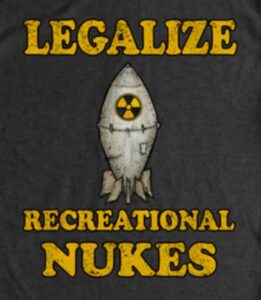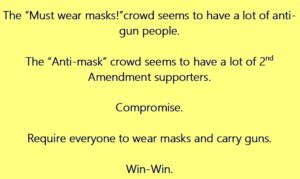Laid up with bum knee, but am making a bit of progress in a couple of areas anyway. One is more than just fun. Pistol work: dry fire exercises. Converted my aiming practice to “instinctive aiming” by working on my grip. With a better grip, I am now having success in simply pointing my practice handgun where I am looking. I started by doing that and then checking my sights and aim point with my dominant eye. Check. Then single-action (cock-aim-“fire”) checking my aim throughout (before and during trigger pull). Then, double-action.
Proper two-hand grip: quickest consistent successes. Dominant hand only: also came along quickly, just not as quickly as two hands. Off-hand: surprised me. Came along as quickly as my dominant hand.
Fun part: when I’m alone in the house I can imagine anything as “targets” and service them. Usually it’s sitting or standing still (because of knee), but even though I move with a cane in my strong hand, my off hand can still practice dry firing while moving. (Or, I can stop, use my dominant hand, then move again.)
Sure, it’s not as good as firing rounds at the range, but it’s drilling new muscle memory in so-called “instinctive shooting,” so I count it as good enough for my current circumstances. I’m eager to see how this affects live fire practice with this lil handgun.



